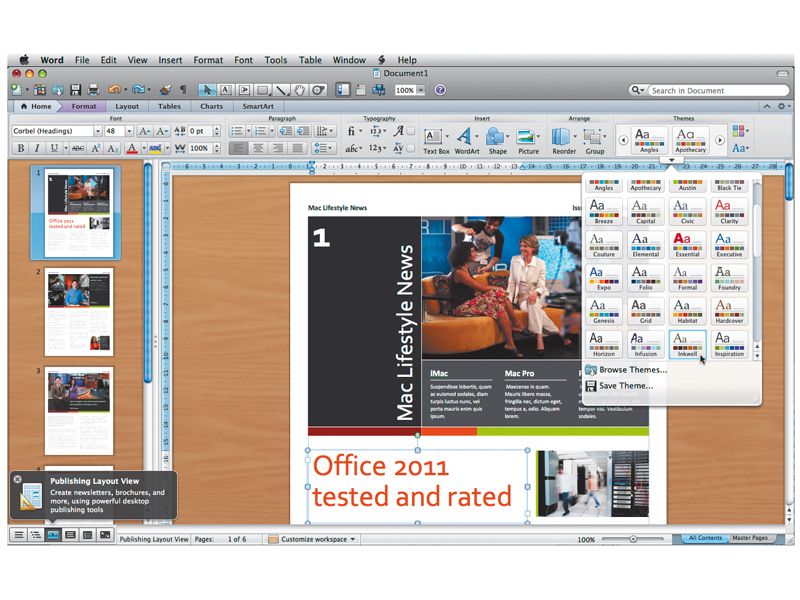

- #Office for mac 2011 install#
- #Office for mac 2011 update#
- #Office for mac 2011 full#
- #Office for mac 2011 license#
mpkg file before creating the script and building the final pkg. You'll need to go back in and clean out a bunch of other stuff that it copies into Composer, so you're only left with your. You did nothing wrong.ĭrag the entire /tmp/ directory into Composer instead of the package. Yes, Composer will try to turn any packages you drag into it into a "convert to source" item.
#Office for mac 2011 install#
That should clean up the installer after its done installing it, or attempting to install it. One thing that might be a good idea to add to the script is an rm line at the end to clean up the installer mpkg. Now, when that installer runs, it will drop the SP1 installer into /tmp/ and after the payload part is done, the postinstall script will actually install it on your boot drive, but will use the -allowUntrusted flag, which will bypass that expired certificate error. Make sure to correct the name to the exact name of the installer package if needed. Select that new script and then add the script syntax as shown in our posts above.Right / Control click on Scripts and choose "Add Shell Script > postinstall" from the menu.Now, turn down the new Composer source triangle in the sidebar to reveal the Scripts section.It should indicate its copying files and then when done will show something like this when your turn down the disclosure triangles. Now open /private/tmp/ in the Finder and drag the SP1 updater package into the side panel in Composer.


The only way to do it would be to build a package that actually deploys the 14.1.pkg into a location like /private/tmp/ and then uses a postinstall script to do something like: installer -pkg /private/tmp/Office201_114.1.pkg -target / -allowUntrustedĮdit: Lol, and I posted nearly identical responses. Just so I try to answer one of your questions above though, the Casper Suite's installation process doesn't use the -allowUntrusted flag when using the built in function, and there is no way I know of to make it use that flag. In that case, you'll have no choices other than deploying 14.1, and then the current updates, or just re-installing Office cleanly on their Mac.
#Office for mac 2011 update#
The only reason you would need to use this 14.1 package is if you already have clients out there with versions like 14.0.2 or something horribly old and you are trying to update them to 14.1 first. So before anything else, I'd really look into getting a more current installer version. I forget now if this has to do with Apple revoking some older developer certificates a while back due to some security issues, or if its just because its expired.
#Office for mac 2011 full#
Assuming you mean you are deploying it as a full installation and not an update to an existing install.Īs you've found, the certificate that was being used for that installer is now no longer valid. You really shouldn't be trying to deploy/install Office 14.1 at this point as that is a very old version.
#Office for mac 2011 license#
So first off, if you have a volume license of Office 2011 with Microsoft, you should be able to obtain a full installer package that is much more current, like 14.3.9 or something like that.


 0 kommentar(er)
0 kommentar(er)
